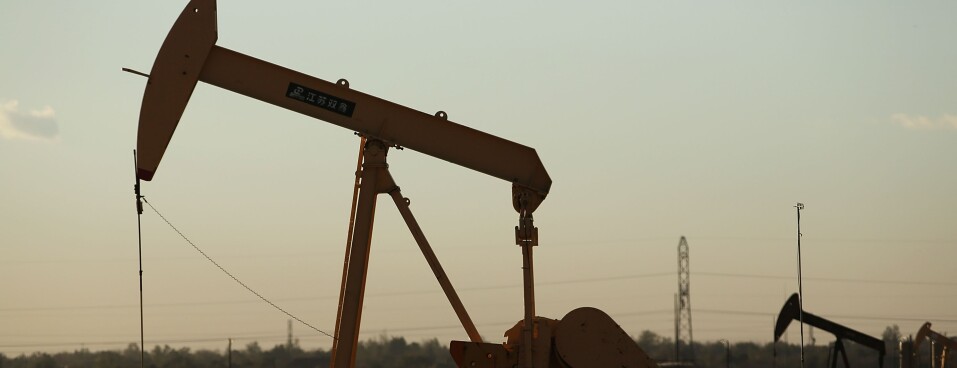
While we are all staying home because of the coronavirus, the Trump administration was busy rolling out new fuel economy rules, and there is little to like about them.
And on May 27, attorneys general led by California’s Xavier Becerra (D) have attempted to block them. While we likely agree that new rules make our roads less safe by delaying innovation, security experts like myself worry that they will harm U.S. energy security by hampering a shift toward alternative fuels.
Yet perhaps the worst aspect of these new standards is the complacent attitude they take to our exposure to global oil market volatility—jeopardizing U.S. economic and national security—and what seems to be a complete lack of understanding of the cartel-led international oil market.
The oil challenge has been in the spotlight lately. Plummeting oil prices driven by factors beyond American control—both Covid-19 and the exploitation of the pandemic by Saudi Arabia and Russia to flood the market—have undermined the EPA’s principal argument at the time of the rules’ publication.
In its rationale for reducing the efficacy of our nation’s efficiency standards, the administration notes that “shale represents a large, new, relatively geopolitically-stable oil supply source,” and it “may reduce the negative price effects of global price swings due to events and situations outside of our borders.”
The shale revolution is a technological innovation that is made in America and demonstrates our technological and entrepreneurial spirit that should be celebrated. The U.S. oil industry alone employs for nearly 10 million of our citizens. However, our domestic oil industry and the Trump administration scramble to stop oil markets implosion over the last month’s steep fall during the Covid crash, has exposed a major weakness in any strategy that includes negotiating for global production cuts and hoping they follow through.
Our oil sector has been duped by OPEC’s grand strategy of inducing boom-bust cycles to keep its grip on the market. Led by Saudi Arabia, the cartel drives prices up over several years—enjoying greater revenues but losing market share to new entrants with higher production prices, like U.S. shale. To regain control, eliminate new competition, and cut production costs, Saudi Arabia then sharply increases production to send prices into free fall.
The tactic proved effective against our domestic industry in 1986 and 2014, but the resilience of some producers meant Saudi Arabia would have to try again. Tanking an oil price already reeling from the coronavirus was the perfect opportunity.
Worse still, much of this new U.S. production was fueled by easy credit and junk bonds, with investment decisions based on an artificial price engineered and controlled by OPEC and Russia. Their actions to crash the price of oil have pulled the rug out from under our domestic producers—and as the North American oil and gas industry has $200 billion in debt maturing over the next four years, the outlook is bleak.
Greater Dependence on a Commodity We Can’t Control
This is neither the energy dominance the White House promised, nor is it the energy independence the administration claimed earlier this year to have delivered.
Pursuing true energy dominance would require us to complement any domestic oil production with efficiency to extract more economic value from the oil we do use and by diversifying our choice of fuels for consumers and businesses. These were goals the former fuel economy standards put us on track to achieve by rewarding investment in alternative fuels—bolstering U.S. energy security by precipitating a shift away from oil as our dominant transportation fuel.
These new standards condemn us to greater dependence on a commodity we have little control over. Moreover, it consigns our auto industry to years of uncertainty as these rules head to the courts, pitting the federal government against California as it is simultaneously forced to appeal to adversaries like Russia and Saudi Arabia to cut oil production.
Most damaging of all, they empower countries that share neither our priorities nor our values to undermine U.S. energy security, by crashing the price of oil whenever they please.
This column does not necessarily reflect the opinion of The Bureau of National Affairs, Inc. or its owners.
Author Information
General Carlton D. Everhart II is the former commander, Air Mobility Command. He is also a member of the Energy Security Leadership Council (ESLC), a project of Securing America’s Future Energy (SAFE).
"fuel" - Google News
June 15, 2020 at 03:03PM
https://ift.tt/2Y2jWrt
INSIGHT: Fuel Economy Rules Undermine US Energy Security - Bloomberg Law
"fuel" - Google News
https://ift.tt/2WjmVcZ
Bagikan Berita Ini














0 Response to "INSIGHT: Fuel Economy Rules Undermine US Energy Security - Bloomberg Law"
Post a Comment